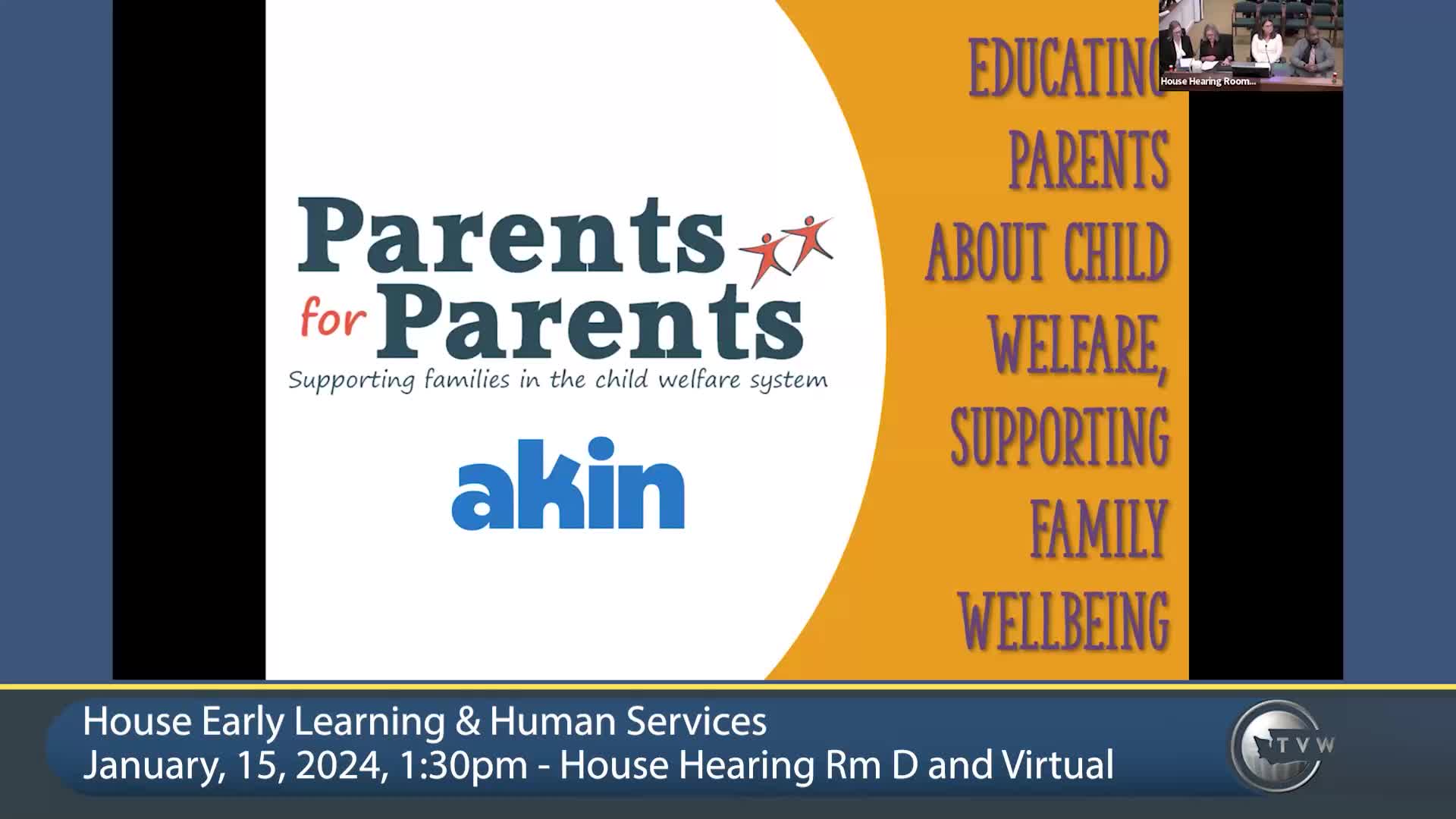Parents for Parents program: evaluation shows higher reunification; state funding request included in governor's budget
Get AI-powered insights, summaries, and transcripts
Subscribe
Summary
Parents for Parents (P4P) coordinators told the committee that the P4P peer‑mentor and dependency‑101 model improves engagement and reunification, citing a 2020 quasi‑experimental evaluation and a cost‑benefit analysis; the governor’s budget includes an increase to expand statewide coverage.
Heather Kanza Mesa and Ambrosia Eberhardt, representing Parents for Parents (P4P), described the peer‑mentor program that provides court support, a one‑time dependency‑101 class and ongoing mentoring for parents navigating dependency cases.
P4P is statutory (RCW 2.7.060 was cited) and operates through contracted nonprofit host organizations coordinated by a statewide office that provides training, fidelity supports and quality assurance. Mesa said P4P services are available to parents at any point during a child‑welfare dependency case and that parent allies are parents with lived experience who have successfully navigated dependency and reunified.
Mesa summarized evaluation findings: a 2020 quasi‑experimental study across three counties found that 70% of parents who attended the dependency‑101 class reunified compared with 53% of parents who did not attend. Parents who received the full P4P model (class, mentoring and support groups) had a 79% reunification rate versus 53% for nonparticipants. Mesa said a cost‑savings analysis with Casey Family Programs estimated that every dollar invested in P4P returns about $3.22 in government savings, driven largely by reduced adoption subsidy costs.
The presenters said current baseline funding covers a portion of statewide operations but that the governor’s proposed budget includes an additional $2.5 million over the biennium (bringing total recommended funding to about $5.3 million) to expand reach and technical assistance. Committee members asked about funding breakdowns and how funds are passed through to host organizations; P4P staff said roughly 64% of current funds are passed through to hosting organizations and that three staff provide statewide technical assistance and oversight.
Why it matters: Peer‑led engagement programs that increase reunification rates can produce short‑term fiscal savings and reduce family disruption; the committee received evaluation results and a specific budget ask for expansion.
